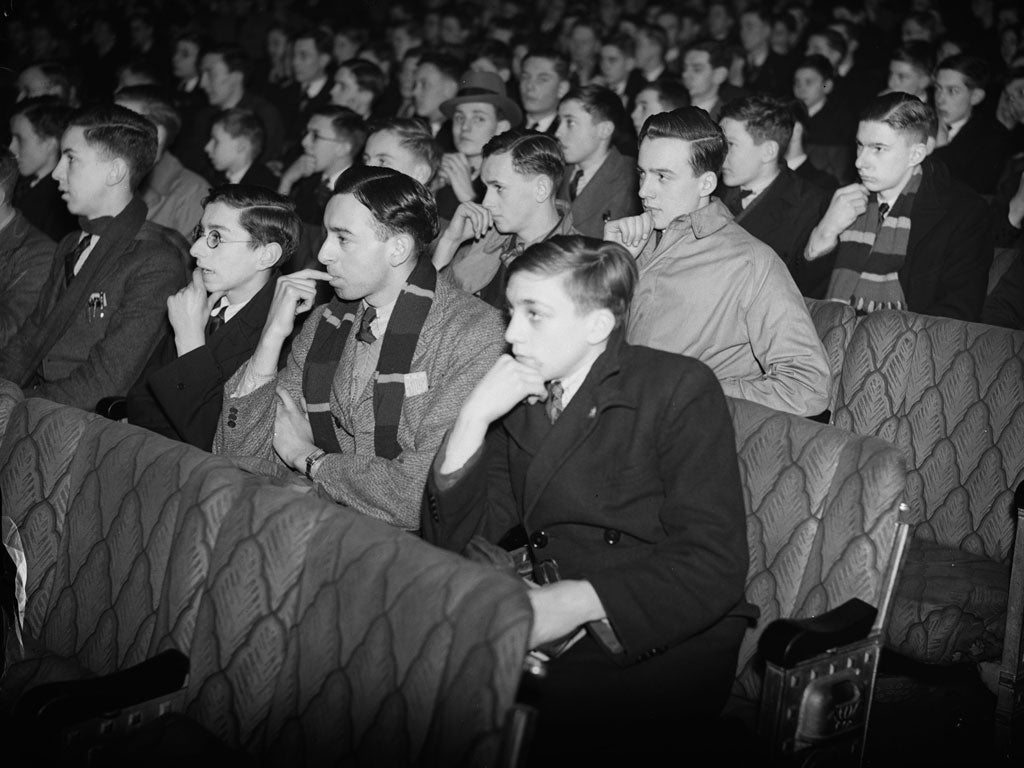The Booker judge who's seen just six films should look at the big picture
The week in arts: Why Sir Peter Stothard should get out more, Bob Dylan's moving tribute to John Lennon and is Mirren reprising the Queen, really such a good idea?


Your support helps us to tell the story
From reproductive rights to climate change to Big Tech, The Independent is on the ground when the story is developing. Whether it's investigating the financials of Elon Musk's pro-Trump PAC or producing our latest documentary, 'The A Word', which shines a light on the American women fighting for reproductive rights, we know how important it is to parse out the facts from the messaging.
At such a critical moment in US history, we need reporters on the ground. Your donation allows us to keep sending journalists to speak to both sides of the story.
The Independent is trusted by Americans across the entire political spectrum. And unlike many other quality news outlets, we choose not to lock Americans out of our reporting and analysis with paywalls. We believe quality journalism should be available to everyone, paid for by those who can afford it.
Your support makes all the difference.Interviewed in this paper a few days ago, the chairman of the Booker Prize judges, Sir Peter Stothard, mentioned en passant that, while literature obviously loomed very large with him, he had only seen six films in his life. That knighthood clearly wasn't for services to the film industry then.
I find this admission odd. Sir Peter is now editor of the world-renowned literary journal, The Times Literary Supplement, but he used to be editor of The Times. Reading his paper's extensive film coverage while he was editor of The Times, did he never think, "oh, I might go and see that one"?
Actually I don't just find the admission odd, I find it shocking, just as I (and, I strongly suspect, Sir Peter) would find it shocking if someone admitted to having only read six books in their lifetime. For, the attitude that one can happily ignore film harks back to a division in the arts that I hoped had long since disappeared; the polarisation of high art and popular culture.
It implies that art can offer a window on life, and insights into the human condition, but only art that happens to be a novel, or a play or an opera, or is found in more traditional galleries and concert halls. It implies that film and contemporary music offer no such insights, life-changing opportunities.
Just as bad as implicitly dismissing the artistic wealth of cinema is the lack of curiosity in not wanting to understand and embrace a culture that is supremely important to most of the nation. If nothing else, surely one should have a disinterested need to keep up with what is entertaining and exciting the mass of people on a daily basis. A natural curiosity would, I'm sure, have had Jane Austen and Charles Dickens down their local Odeon each week.
Meanwhile, I feel for Sir Peter for what he has missed, from Hitchcock to Haneke, from arthouse to Ealing, from Bogart, to... well, let's not continue, it could be a list three pages long. How on Earth did he get it down to six? Let's hope he had a mischievous, quirky streak and the six were all Carry On films, rather than an impossible assertion that one can select the six best films ever made.
Missing out it surely is. I have never been convinced that those people who confine themselves to one art, the bookworm, the exclusively opera or dance aficionado, are truly enjoying the arts. You can miss so much and close off so many sensibilities by immersing yourself only in one art form.
Of course, I might be doing Sir Peter a terrible injustice. In saying he has only ever seen six films, perhaps he meant that he has only been to the cinema six times. Perhaps, after reading a nightly novel, he settles down by the TV for a late-night DVD. But even if this is the case, he is missing out terribly, missing out on what David Puttnam has described as the essential way to see a film, with a live audience, reacting, laughing and crying together. The chairman of the Booker judging panel should get out more.
The ballad of John and Bobby
The most touching track on the excellent new Bob Dylan album is "Roll On John", a tribute to Dylan's friend John Lennon. The only strange thing about it is that Lennon died in 1980, since which time a lot of years and a lot of Dylan albums have passed. Perhaps one of the many things that Dylan is showing here is that grief can take a long time to settle, a long time to find expression in words, and can be all the more poignant for that.
Dame Helen must not overdo her royal turn
I feel a little uneasy that Helen Mirren is reprising her portrayal of the Queen to play Her Majesty on stage in a play written by Peter Morgan, the writer of the film The Queen, and directed by Stephen Daldry. With such a line-up, the play, which looks at the weekly audiences that the Queen has granted to her Prime Ministers, looks sure to be of high quality. And yet I hope that Dame Helen doesn't find a third reason to play the role. Once is brilliance, twice feels a bit like trading on old glories, three times and it would become a party piece.
d.lister@independent.co.uk
Join our commenting forum
Join thought-provoking conversations, follow other Independent readers and see their replies
Comments